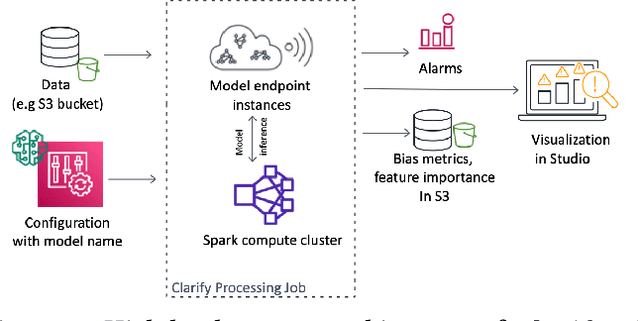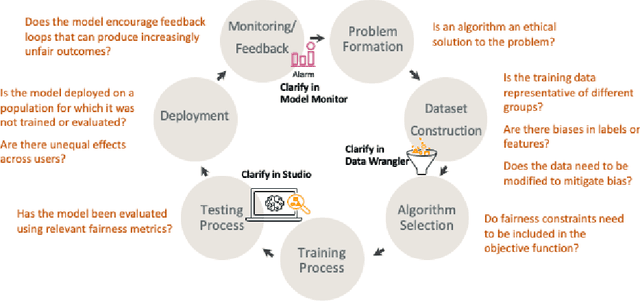Keerthan Vasist
Evaluating Large Language Models with fmeval
Jul 15, 2024



Abstract:fmeval is an open source library to evaluate large language models (LLMs) in a range of tasks. It helps practitioners evaluate their model for task performance and along multiple responsible AI dimensions. This paper presents the library and exposes its underlying design principles: simplicity, coverage, extensibility and performance. We then present how these were implemented in the scientific and engineering choices taken when developing fmeval. A case study demonstrates a typical use case for the library: picking a suitable model for a question answering task. We close by discussing limitations and further work in the development of the library. fmeval can be found at https://github.com/aws/fmeval.
Amazon SageMaker Clarify: Machine Learning Bias Detection and Explainability in the Cloud
Sep 07, 2021



Abstract:Understanding the predictions made by machine learning (ML) models and their potential biases remains a challenging and labor-intensive task that depends on the application, the dataset, and the specific model. We present Amazon SageMaker Clarify, an explainability feature for Amazon SageMaker that launched in December 2020, providing insights into data and ML models by identifying biases and explaining predictions. It is deeply integrated into Amazon SageMaker, a fully managed service that enables data scientists and developers to build, train, and deploy ML models at any scale. Clarify supports bias detection and feature importance computation across the ML lifecycle, during data preparation, model evaluation, and post-deployment monitoring. We outline the desiderata derived from customer input, the modular architecture, and the methodology for bias and explanation computations. Further, we describe the technical challenges encountered and the tradeoffs we had to make. For illustration, we discuss two customer use cases. We present our deployment results including qualitative customer feedback and a quantitative evaluation. Finally, we summarize lessons learned, and discuss best practices for the successful adoption of fairness and explanation tools in practice.
 Add to Chrome
Add to Chrome Add to Firefox
Add to Firefox Add to Edge
Add to Edge